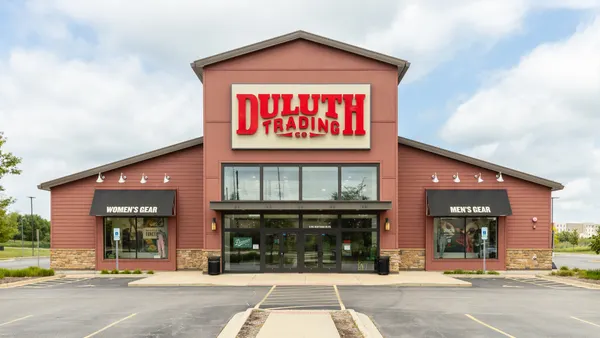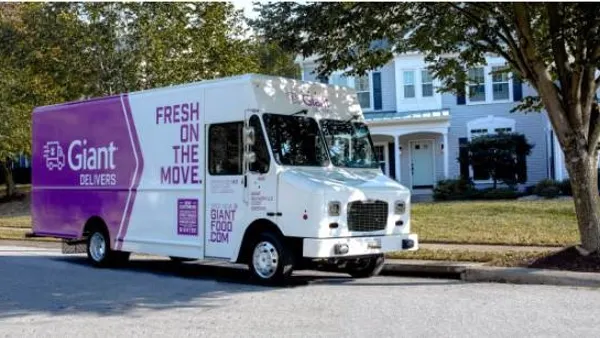Dive Brief:
- Home Depot's second quarter earnings showed no sign of stress from the company's pledged $1.2 billion investment in its supply chain, and several initiatives have moved forward in the second quarter, according to the company's executives on a Tuesday conference call.
- Same-day small parcel delivery is up and running in "almost" all major markets, and the company opened its first of many "market delivery operations" — a fulfillment center intended to specifically facilitate fast delivery of large and bulky items near large markets.
- Though transportation and fuel costs were detractors from Home Depot's balance sheet for the second quarter, Craig Menear, CEO of Home Depot, called tariff pressure affecting Canadian lumber and imported washing machines "manageable."
Dive Insight:
Home Depot announced last year that the massive investment in its own supply chain would make the company the "fastest, most efficient delivery in home improvement." And in the second quarter, the company's value chain was credited in part with helping to drive stellar results — the highest ever for sales and net earnings.
Increasing focus on buy-online-pickup-in-store (BOPIS) through the installation of pick-up lockers is part of the strategy, along with same-day delivery and "market delivery operations (MDO)," which seek to speed delivery of bulky items that historically require more delivery time. With just one MDO up and running, Menear was hesitant to celebrate success yet, but he did confirm that more facilities are planned.
"It’s very, very early to gather any learnings — we just got the facility open, but we’re up and running and obviously learning as we go. We actually won’t disclose how many we’ll open in the back half, but if you think about the approach to this ... it is an advantage that we’ve built in our upstream network to actually feed the downstream opportunity that we have to continue to drive the way the customer wants to engage with us," Menear said on the call.
"(The MDO) is one of those stockless locations that’s a delivery hub in a local area and we deliver primarily appliances out of there at this point, but we’ll be adding more products to that as we go," added Marc Brown, Senior Vice President for Store Operations.
Home Depot executives brushed off any concern about tariffs rebounding onto the consumer, especially in affected appliances like washing machines.
"As the Korean manufacturers get their facilities up and running in Tennessee and South Carolina respectively, that tariff pressure will mitigate because they will be producing all their machines here domestically," said Menear.
The growing constellation of delivery services, along with some in-store changes like more frequent merchandise display resets and higher inventory levels generally contributed to the better-than-expected 8% uptick in sales.
"Just the capital associated with our merchandising resets alone this year is $275 million, so we’re investing into this for the long term customer experience," said Chief Financial Officer Carol Tomé.














